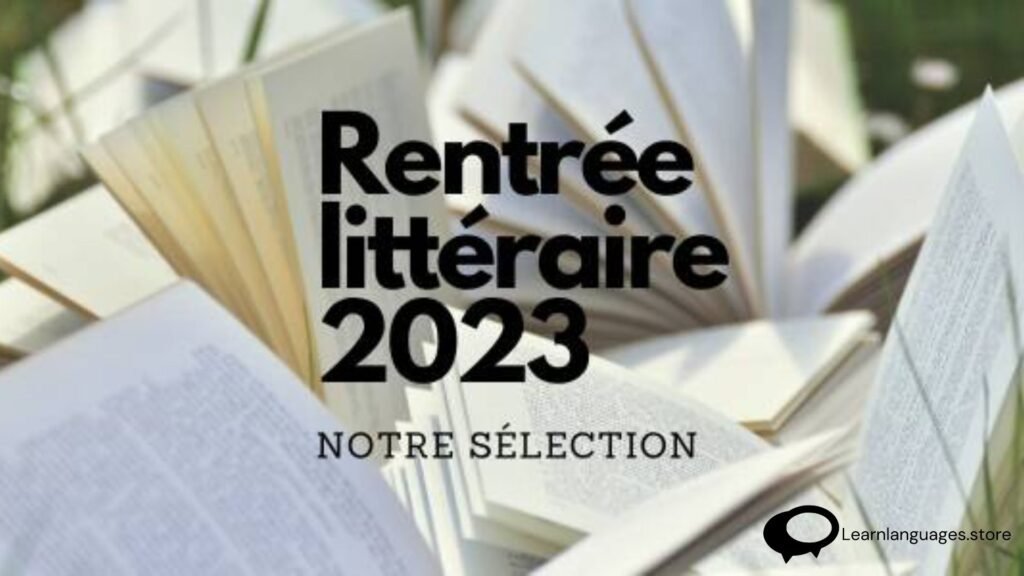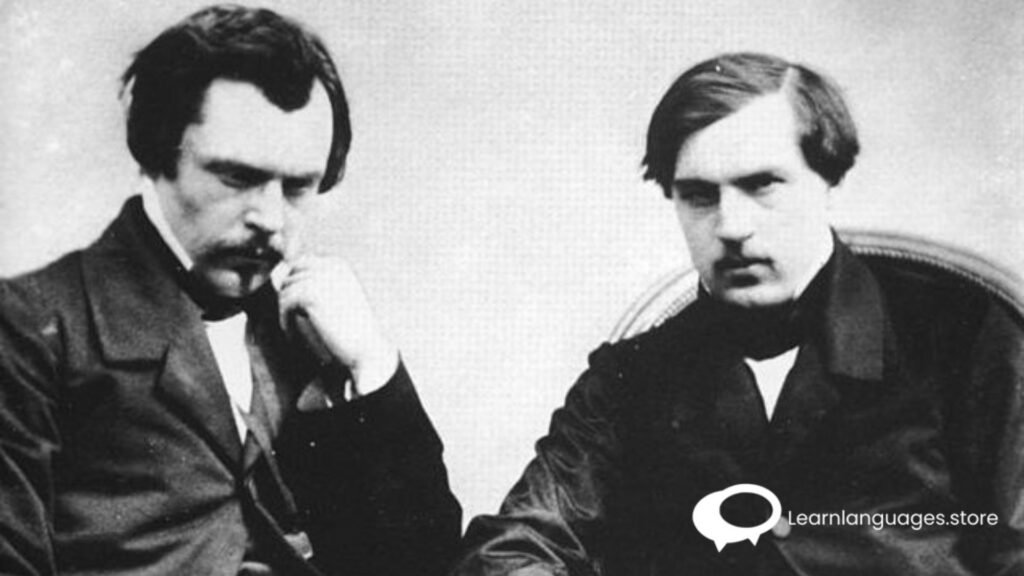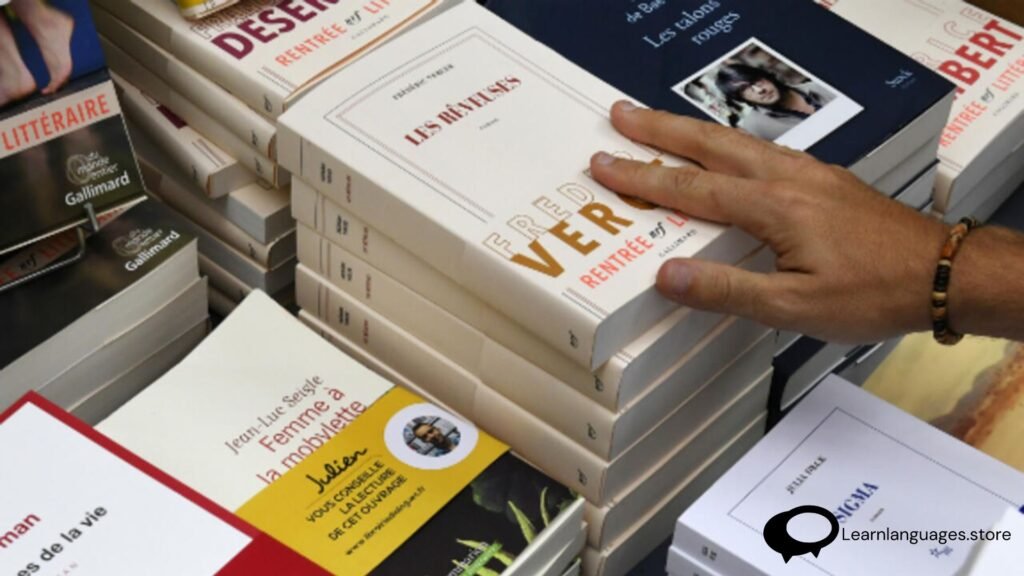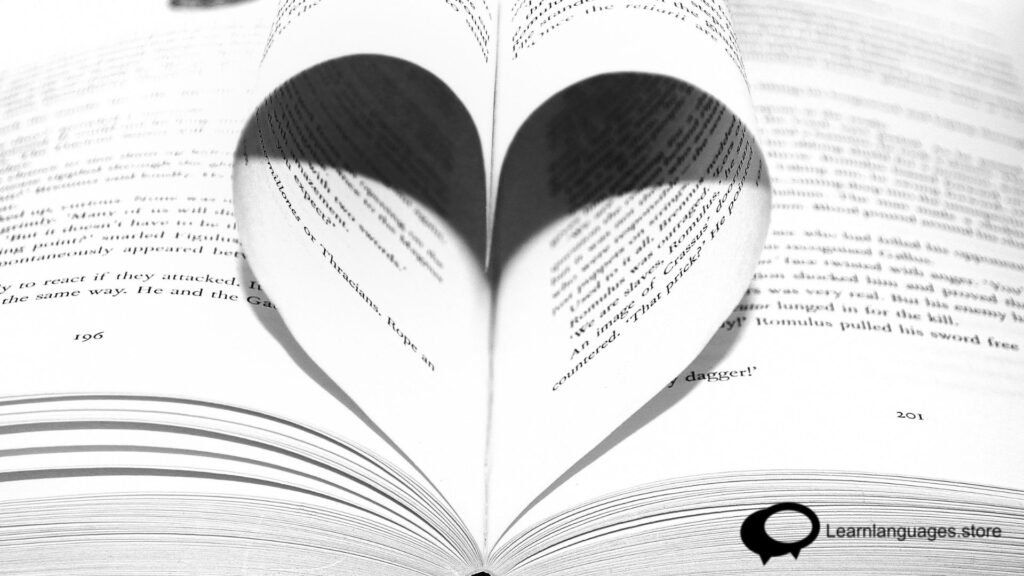LA RENTRÉE LITTÉRAIRE
LA RENTRÉE LITTÉRAIRE
In France, around 600 books are published between the end of August and the beginning of October. Bookshops around the nation are ablaze with excitement as fans race to purchase the hottest new novels—some of which will go on to win renowned French literary awards like the Prix Goncourt. Many Americans are unaware of the Cannes Film Festival of literature, which takes place around this time of year, known as la rentrée littéraire.

WHAT ARE THE ORIGINS OF LA RENTRÉE LITTÉRAIRE?
The expression “la rentrée” (the return, or “back to school”), which denotes the conclusion of summer vacation and the beginning of the school year, may be recognizable to you. Interestingly enough, though, nobody is certain of the actual origin of the word “la rentrée littéraire.” The French writer Mallarmé named the autumn theatrical season la rentrée théâtrale in 1874, and a number of French academics also attribute the invention of la rentrée littéraire to Mallarmé. However, it wasn’t until the 19th century that the name gained traction, partly due to the well-known frères Goncourt.
The inaugural Prix Goncourt, founded by the Goncourt brothers seen in the unattractive top portrait, was won by John Antoine Nau in 1903. Regretfully, it is the only photo of them that is available!). Since then, the award has grown in prestige, inspiring other literary academies to establish their own prizes, which you may read about below.

Publishers started publishing all of their best-selling new books in the fall of the 1950s, just before the literary awards were awarded. This fall publishing boom was dubbed “lentrée littéraire.” These days, the majority of French novels that win awards first appear in bookshops in the fall, just as the majority of movies that are nominated for “Best Picture” at the Oscars are released in the fall.
WHY IS LA RENTRÉE LITTÉRAIRE A DISTINCTLY FRENCH TRADITION?
The French have a well-known passion for books. Victor Hugo’s famous quote, “Lire, c’est boire et manger; l’esprit qui ne lit pas maigrit comme le corps qui ne mange pas,” sums up their love of reading wonderfully. (Reading is like eating and drinking. A mind devoid of reading is as thin as a body lacking nourishment. US publishers are concerned that the book has no future since nonfiction sells far better than fiction in the country. However, “la nation littéraire,” France, continues to enjoy great popularity for this work. This explains why, aside from Belgium, France is the only nation to commemorate the publication of new novels at a certain time of the year.
If you’d like to learn more about France’s love affair with literature while practicing your French, check out some of these classic literary French TV shows:
- Lectures pour tous: This is the first literary French TV show that ran from 1953 to 1968. Watch the show’s presenter Pierre Dumayet interview the famous American novelist James Baldwin here.
- Apostrophes: This literary show ran for fifteen years and, believe it or not, was one of the most watched shows on French television. Each hour-long episode was devoted to one or several authors. Famous writers who appeared on the show include: Vladimir Nabokov, Milan Kundera, Georges Simenon, John Le Carré, Umberto Eco, and Marguerite Duras.
- Bouillon de culture. Bernard Pivot, the famous host of Apostrophes, created this show in 1991 and it ran for ten years. Many famous writers and actors appeared on it, and Pivot asked all of them questions from the Proust Questionnaire.

WHAT ARE THE MOST IMPORTANT FRENCH LITERARY PRIZES?
The Prix Goncourt, the Prix Renaudot, the Prix Femina, the Prix Interallié, and the Prix Médicis are the five “grands prix” in France. To combat the chauvinism of the Prix Goncourt, whose jury at the time was made up entirely of males, a group of women founded the Prix Femina in 1904. The Prix Renaudot was established in 1926 by ten literary journalists and is now the most prestigious award following the Goncourt. Established in 1958, the Prix Médicis recognizes and honors a relatively unknown or young author.
The Prix Goncourt des Lycéens, sometimes referred to as the younger sister of the Prix Goncourt, is another significant literary award. Twelve literary works are nominated by ten Académie Goncourt judges each year for the award. After reading all twelve novels, 2,000 high school students held a discussion and cast their votes to choose the winner.

WHICH 2023 FRENCH NOVELS SHOULD I READ?
- L’Épaisseur d’un cheveu by Claire Berest: A gripping novel exploring the darker side of humanity. The perfectly matched Etienne and Vive have been enjoying ten years of marriage when their relationship suddenly unravels. Berest’s story takes you along Etienne’s complicated journey, but wastes no time in telling the reader the destination: he will kill his wife.
Practice your French: Watch Claire Berest discuss her latest novel, her interest in these darker subjects and more in an interview here.
- Le Château des Rentiers by Agnès Desarthe: Over her many years of writing, Desarthe has been awarded numerous literary prizes and was nominated for the Prix Goncourt in 2021. Her latest novel will transport you through generations, blending past and present, by way of her own grandparents’ former apartment on the Rue du Château-des-Rentiers in Paris. This one will be nostalgic and light-hearted, with plenty of humor.
Fun Fact: Agnès Desarthe was made a Chevalier of the Legion of Honor, France’s highest civil and military honor in 2015!
- Dali : avant gala by Julie Birmant: For those who love a good bande-dessinée, try out Birmant’s follow up to her award-winning graphic biography of Pablo Picasso. With the help of the vivid illustrations of Clément Oubrerie, Birmant tells the story of the sensitive, anxious and ingenious Salvador Dalí as he navigates an artistic awakening in the City of Lights.
Learn Languages Store
Vashi,
Email: services@learnlanguages.store










